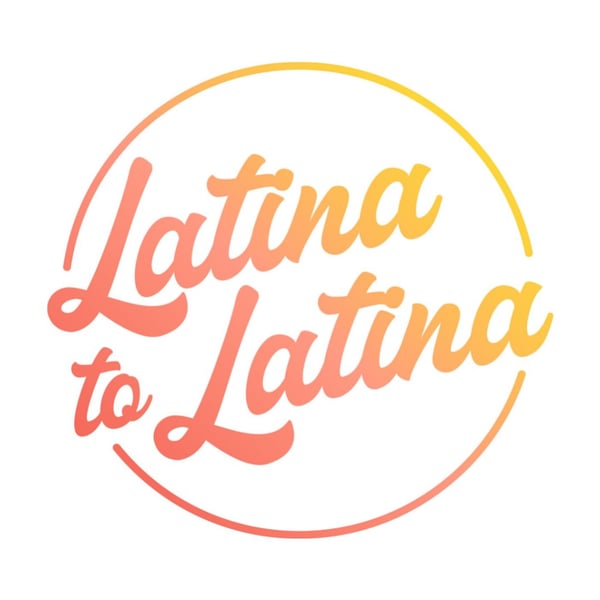How Brown Badass Bonita Founder Kim Guerra Learned to Practice Radical Self-Love
Latina to Latina
LWC Studios
4.8 • 618 Ratings
🗓️ 3 February 2025
⏱️ 20 minutes
🧾️ Download transcript
Summary
Transcript
Click on a timestamp to play from that location
| 0:00.0 | Kim Gera was raised to believe that to be a good girl, she needed to be quiet, to suppress her true self. |
| 0:17.5 | Once she realized that was all a lie designed to keep her small, she began to step |
| 0:21.8 | into her power, and she cultivated a community of fellow Latinas who wanted and needed to do the |
| 0:26.6 | same. Kim is sharing that experience and her learnings as a marriage and family therapist in her new |
| 0:32.1 | book, Badass Bonita. Break the silence, become a revolution, unearth your inner guerrera. |
| 0:38.6 | Kim and I talk about the importance of interrogating family systems, what tracing her own |
| 0:42.7 | family's genogram revealed to her, and why, let's be honest, basically every Latino we know |
| 0:48.5 | is now on a healing journey. Kim, thank you so much for being here. |
| 1:06.9 | Thank you for having me. |
| 1:08.9 | One of the things I think is interesting both about your work and about |
| 1:13.2 | your book is that you're both living through the experience of unpacking your own trauma, |
| 1:20.5 | your own family systems, your own upbringing, and you're learning the professional skills |
| 1:25.7 | in real time of what it looks like to apply clinical work to that experience. |
| 1:31.5 | So the first time you learn about adverse childhood experiences and the way that those are assessed, what jumps out to you? |
| 1:42.3 | Yes, the ACE scores was eye-opening and heartbreaking, and it also gave me a lot of hope. |
| 1:48.9 | The ACE score, the Adverse Childhood Experience assessment is an assessment that was created by Dr. Nadine Burke, |
| 1:57.2 | and it asks questions in a way that it helps you identify what types of trauma and |
| 2:04.0 | environments you grew up in at home. So some of the questions were, did somebody have a gun |
| 2:11.1 | in the house? Did a person in your family go to jail? Was a person in your family under the influence of drugs, |
| 2:18.9 | alcohol, or any other substances that impacted their consciousness? Did your caregiver, |
| 2:25.5 | meet your needs? Were you hungry? Were you clean? The SS for neglect, abuse, violence, |
| 2:32.9 | poverty. And in a way, for me, as I was answering those questions, it made me feel less alone, |
... |
Please login to see the full transcript.
Disclaimer: The podcast and artwork embedded on this page are from LWC Studios, and are the property of its owner and not affiliated with or endorsed by Tapesearch.
Generated transcripts are the property of LWC Studios and are distributed freely under the Fair Use doctrine. Transcripts generated by Tapesearch are not guaranteed to be accurate.
Copyright © Tapesearch 2025.

